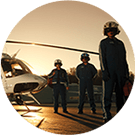As the last leaves of Autumn fall and a winter chill begins to set in across the country, you may be taking steps to winterize your home, farms or vehicles. Have you considered how you can also Winterize your Health? Each season brings its own set of inherent health risks—heat stroke in summer, allergies in spring, etc. Winter is no different.
From colds and Flu to slips and falls, winter can pose challenges for our physical wellbeing. Here are some tips to ensure you have the healthiest season with winterization tips for you and your family.
Tips to Winterize your Health
Boost Your Immune System: In summer, it’s easy to get sufficient vitamin D just by being outdoors. When the cold sets in, vitamin D levels drop due to lack of sun exposure. This can weaken your immune system’s response to viruses that circulate in winter making it more likely you’ll become ill. You might consider a supplement for immune support, like vitamins D and C. Speak with your doctor about any vaccines that may be appropriate for your family’s unique health needs.
Regular exercise can also help keep your body strong and improve your immune system. Try indoor activities like yoga, pilates, or home workout videos if it’s too cold outside.
Stay Hydrated: It’s easy to forget to drink water when it’s cold, but staying hydrated is crucial for your overall health. Herbal teas and warm water with lemon can be great options. Indoor heated air tends to be dry and this can irritate your nasal passages and eyes weakening their defenses against airborne germs. Consider eyes drops and nose sprays to keep properly moisturized this winter.
Dress Appropriately: Layer your clothing to stay warm and protect yourself from the cold. Don’t forget to wear hats, gloves and scarves to cover exposed skin. Especially when walking on frozen ground, use appropriate footwear to keep from slipping. You may want to invest in crampons for icy conditions or just stay home if surfaces are unsafe. Seniors experience life-altering falls in winter due to conditions like osteoporosis and lower muscle masses. Use caution to prevent serious injury.
Practice Good Hygiene: Wash your hands regularly and avoid touching your face to reduce the risk of infections. Keep hand sanitizers handy when you’re on the go and consider wearing a mask if infections in your area are increased or you will be in crowds. If you are sick, stay home, when possible, to avoid infecting others who may be able to recover easily – like cancer patients, infants and the elderly.
Being prepared financially for winter health challenges can mean preparing for unexpected air ambulance needs. While accidents and severe illness happen year-round, winter can see a boost in air ambulance calls* AirMedCare Network’s membership can ensure that if you need the specialized care of our air ambulance providers, you will not face further out-of-pocket costs. Learn about this financial winterization for your household budget and health at airmedcarenetwork.com.
*https://www.researchgate.net/publication/319051323_Impact_of_Air_Temperature_on_London_Ambulance_Call-Out_Incidents_and_Response_Times/download
Frequently Asked Questions:
If an AirMedCare Network Provider does not transport you, you will be responsible for payment. Our membership program only covers transports provided by our affiliates.
There is no limit to the number of transports a member may take in a year. Each transport is handled the same way and must be an emergent or time-sensitive transport as determined by a physician (or other appropriate provider) or first responder unaffiliated with AMCN.
With an AirMedCare Network membership, any person or persons who reside under one (residential) roof are covered. In the event we have a member who lives in a duplex or apartment complex, we designate the primary member’s residence/address— that is considered the “one roof”. Undergraduate college students can be covered under their parent’s membership as well as anyone previously residing in the household who is then moved to a permanent care facility.

How Air Ambulances Can Help Reduce Emergency Room Wait Times
Patient experience in healthcare has been a hot topic for the past 20 years. Studies show that when patients are happier with their care, they

Holiday Gifting for the Family That Has Everything: Unique Gifts They’ll Truly Appreciate
Finding the perfect gift for a family that seems to have it all can feel nearly impossible. They already own the latest gadgets, their home

A flight nurse’s courage: How one hero stepped up when it mattered most
Across the country, emergency medical professionals are trained to respond at a moment’s notice®. But sometimes circumstances make a difficult situation even more challenging —




